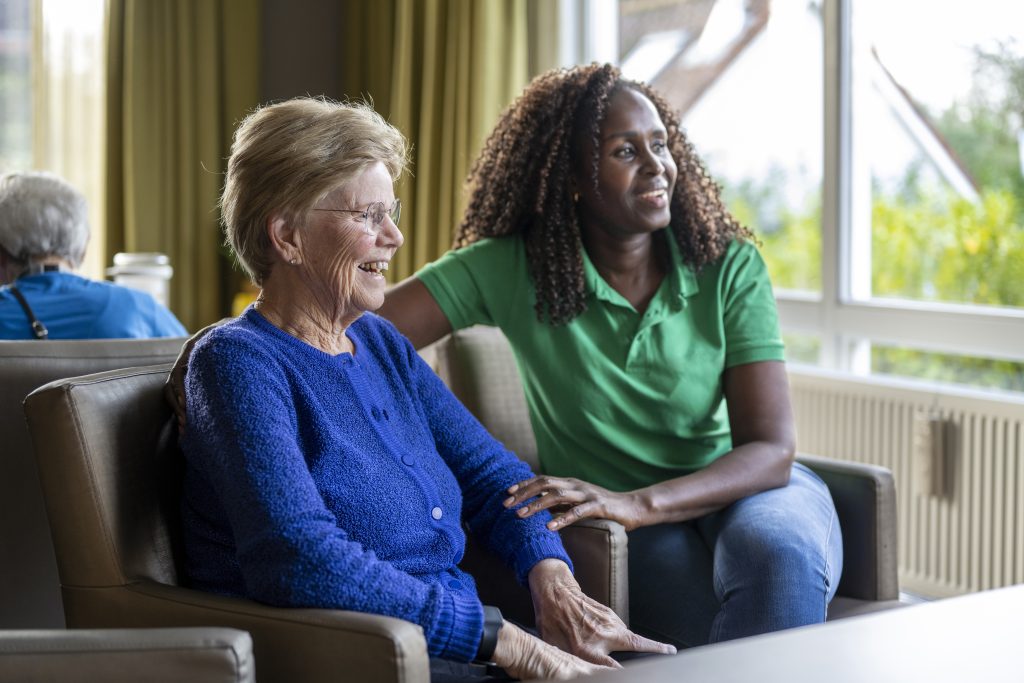Most people don’t like asking for help, even when they really need it. For seniors, that feeling can run even deeper. Many older adults have spent a lifetime being independent, raising families, working hard, and taking care of others. So when it’s time for them to receive support, it can feel unfamiliar, uncomfortable, and sometimes, even embarrassing.
At Ace Home Health Care, we understand that the hardest part of getting care is often asking for it. That’s why we lead with sensitivity, patience, and respect. Our approach to personal care services for seniors focuses not only on what we do, but also on how we do it, so that every senior feels safe, respected, and in control.
Why Some Seniors Resist Help at First
It’s easy to assume that once someone needs support, they’ll welcome it. But the truth is, accepting help can feel like admitting weakness. Many seniors worry about losing their independence or being treated like a burden. Others simply don’t want to trouble their families or feel too proud to ask for assistance.
That’s why the first step in providing personal care assistance is trust. We don’t barge in with routines and rules. Instead, we take time to learn who they are, what they’re comfortable with, and how we can support them in a way that feels personal, not clinical. From the very first visit, we aim to feel more like a friend than a stranger with a schedule.
What Does a Home Care Assistant Do?
A home care assistant does more than help with daily tasks—they offer emotional support and peace of mind. Their role might include assistance with bathing, dressing, grooming, and meal preparation. But they also offer companionship, encouragement, and a listening ear when someone just needs to talk.
Care assistants are trained to recognize the difference between “doing for” and “doing with.” We never want a senior to feel like they’ve lost control. Instead, we work together, helping them stay as independent as possible while easing the burdens that have become too difficult to manage alone. That balance builds confidence and dignity, not dependency.
A Gentle Start Makes All the Difference
When a senior is nervous about receiving care, the smallest details matter. Here are a few ways we create a gentle introduction to personal care services in Illinois:
- We introduce caregivers slowly, so the senior has time to get comfortable
- We listen first, asking about preferences, fears, and past experiences
- We take cues from the client, allowing them to set the pace for care
- We prioritize consistency, sending the same caregivers whenever possible
- We keep communication open, making sure both the senior and family feel informed
These steps help ease the transition and ensure that care never feels forced, but instead, welcomed.
Common Signs a Loved One May Need Help (But Won’t Ask)
Sometimes it’s not about what seniors say, but what they don’t say. You might notice small changes in behavior that hint they’re struggling but aren’t ready to ask for help. These clues are subtle, but they matter.
They might stop cooking regular meals or let house chores pile up. They may wear the same clothes for days or avoid leaving the house altogether. These are signs that personal care services for seniors could greatly improve their quality of life, but the conversation needs to be handled gently. At Ace, we’re here to support both seniors and families through that discussion, with compassion and understanding.
The Role of Family: How to Support Without Overstepping
When families notice a loved one needs help, they often want to jump in—but it’s easy to come on too strong. Here’s how to be supportive without making your loved one feel pressured:
- Start with curiosity: Ask how they’re feeling, rather than pointing out what’s wrong
- Frame care as support, not control: Focus on what care can add to their life
- Offer options: Let them be part of the decision-making process
- Talk about small tasks first: Begin with light help, like errands or meals, before jumping into full-time care
- Involve a trusted professional: Sometimes, seniors open up more to someone outside the family
These conversations take time. But with patience, they can lead to solutions everyone feels good about.
How Ace Home Health Care Approaches Sensitive Situations
At Ace Home Health Care, we treat every client as a person first, not a patient. Our caregivers are trained in more than just care skills—they’re trained in emotional awareness, listening, and building genuine relationships. We know that seniors are more likely to accept help when it’s offered with kindness and respect.
Our team takes extra care during the first few visits to ease into routines, ask about comfort levels, and build rapport. Whether we’re helping with hygiene, mobility, or just keeping someone company during a meal, we do it with the understanding that being invited into someone’s home is a privilege. And that privilege is never taken for granted.
Personal Care That Feels Empowering
One of the biggest myths about personal care assistance is that it takes away independence. In reality, when done right, it does the opposite. It allows seniors to maintain control over their lives by having the support they need to do things safely and with dignity.
From choosing what to wear to deciding when to shower, we always encourage the client to lead. Our role is to help them live on their terms, while staying safe and well. That kind of personalized care builds trust and loyalty—and helps seniors feel like themselves again.
When Help is Hard to Ask For, Ace Knows How to Help
It’s not easy for seniors to say, “I need help.” It takes courage, vulnerability, and trust. At Ace Home Care, we honor that courage with every visit. We show up not just with skills, but with empathy, patience, and heart.
If your loved one is struggling to accept support, let Ace Home Care be the gentle bridge between independence and assistance. Our team is here to listen, not rush. To understand, not judge. And to offer the kind of care that feels like kindness, not control.
Reach out to Ace Home Care today, and discover how thoughtful, respectful care can make all the difference when help is hard to ask for.



